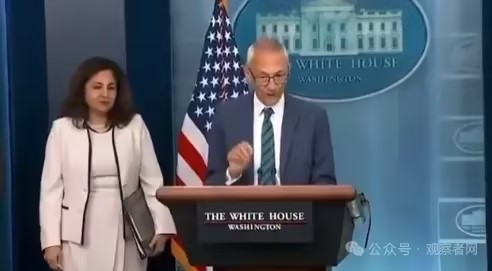
On May 22 local time, the United States House of Representatives passed the "One Big Beautiful Bill" strongly promoted by Trump by an extremely narrow margin of just one vote. This bill has attracted much attention since its proposal and has caused waves in multiple fields such as politics and economy. Its complex provisions and far-reaching impacts deserve in-depth analysis.
From the perspective of content composition, this bill mainly covers four key parts. In terms of taxation, the tax reform policy of Trump in 2017 has been continued and upgraded. The top personal tax rate of 37% has been maintained, and the upper limit of state and local tax (SALT) deductions has been gradually raised. The upper limit for joint filing by couples has been raised to $32,000, and for individuals to $16,000. New benefits such as tax exemption for tips and overtime income have also been added. But only taxpayers with a Social Security Number (SSN) are eligible. At the expenditure level, on the one hand, a significant investment of 150 billion US dollars was made to increase military expenditure and enhance military strength. On the other hand, 175 billion US dollars have been invested in immigration law enforcement to strengthen border control. Meanwhile, the bill plans to cut Medicaid by 625 billion US dollars in the next ten years. This reduction is huge and is expected to result in 8.7 million people losing their health insurance, which has sparked much controversy. To meet the demand for fiscal expenditure, the bill also raises the debt ceiling by 4 trillion US dollars to prevent the Treasury Department from defaulting in the short term.
The passage of this bill is underwritten by profound political considerations. The three core economic agendas that Trump promised during the election - tariffs, tax cuts and spending reductions - have not been progressing smoothly. The tax cut policy has become the key for him to fulfill his promises. As the midterm elections approach, the Republican Party hopes to consolidate its electoral advantage through this legislative outcome. Just as Trump's close friend and former House Speaker Gingrich said, if the US economy prospers due to tax cuts in 2026, the Republicans are expected to retain control of the House of Representatives. Conversely, voters may abandon the Republican Party.
However, the controversy over the bill is also very significant. Economically, the greatest risk lies in exacerbating the US fiscal deficit. According to estimates by nonpartisan institutions, after the bill takes effect, the federal debt may increase by 2.7 trillion US dollars in 2034, and the debt-to-GDP ratio may rise to 125%. The phenomenon of leading fiscal deficits is prominent. In the next four years, the US government may use up two-thirds of the funds of the 10-year coordination bill. This made the fiscal situation in the United States even worse. The US bond market was the first to react, with the yield on 30-year Treasury bonds once breaking through 5% and the yield on 10-year Treasury bonds remaining at a high level of 4.5%. This triggered the dispatch of "bond market vigilants", and the "stock, bond and foreign exchange" triple blow situation reappeared.
At the social level, the bill has been accused of "robbing the poor to help the rich". A report from the Congressional Budget Office of the United States shows that by 2027, the income of the bottom 10% of the population in the United States will decrease by 2%, while that of the top 10% will increase by 4%. Measures such as cutting medical assistance and food aid have seriously affected the lives of low-income groups. About 8.7 million people may lose their medical insurance, and the lives of many families relying on food aid have become even more difficult.
At present, the bill has been submitted to the Senate for review, where it will face more challenges. There are obvious divisions within the Republican Party. Conservatives demand larger-scale spending cuts to control the deficit, while lawmakers in high-tax states strive for further increases in the SALT deduction. If four Republican lawmakers defected, the bill would not pass. Democrats are even more unanimously opposed, accusing the bill of reducing taxes for the rich at the expense of the interests of ordinary people.
Trump's "Big and Beautiful Act" attempts to find a way out among stimulating the economy, meeting political demands and balancing finances. But for now, it seems more like a risky gamble. Its future direction and its impact on the economic and political landscape of the United States and even the world remain full of uncertainties and deserve continuous attention.

On January 4th local time, Trump warned India that if it does not limit its purchase of Russian oil, the United States will continue to raise tariffs on Indian products. Trump's latest warning sent shockwaves through the Indian financial market in just one day.
On January 4th local time, Trump warned India that if it do…
In October 2025, the US trade deficit narrowed unexpectedly…
According to the British media CoinJournal, recently, due t…
In January 2026, US President Trump once again set his sigh…
Europe is facing a crucial strategic choice: In the face of…
On New Year's Day 2026, BMW China announced a "systematic v…